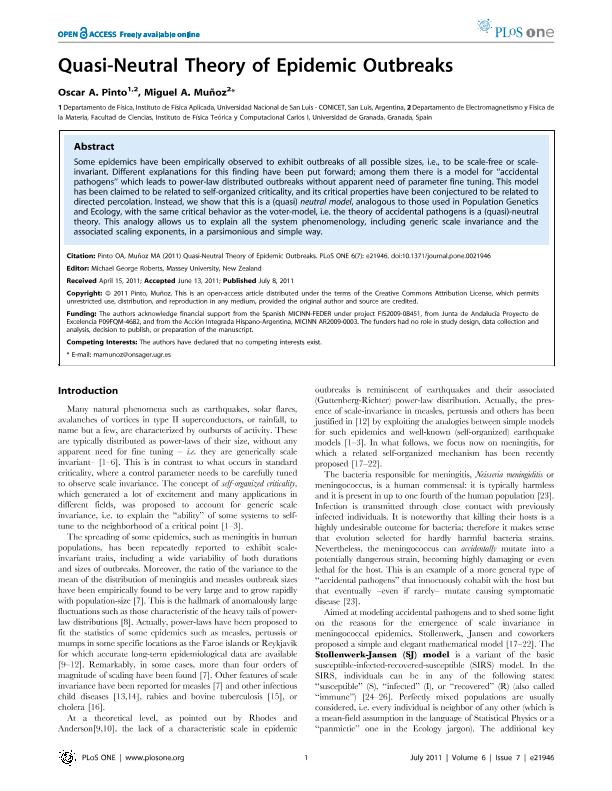Artículo
Quasi-Neutral Theory of Epidemic Outbreaks
Fecha de publicación:
07/2011
Editorial:
Public Library of Science
Revista:
Plos One
ISSN:
1932-6203
Idioma:
Inglés
Tipo de recurso:
Artículo publicado
Clasificación temática:
Resumen
Some epidemics have been empirically observed to exhibit outbreaks of all possible sizes, i.e., to be scale-free or scale-invariant. Different explanations for this finding have been put forward; among them there is a model for "accidental pathogens" which leads to power-law distributed outbreaks without apparent need of parameter fine tuning. This model has been claimed to be related to self-organized criticality, and its critical properties have been conjectured to be related to directed percolation. Instead, we show that this is a (quasi) neutral model, analogous to those used in Population Genetics and Ecology, with the same critical behavior as the voter-model, i.e. the theory of accidental pathogens is a (quasi)-neutral theory. This analogy allows us to explain all the system phenomenology, including generic scale invariance and the associated scaling exponents, in a parsimonious and simple way.
Palabras clave:
Epidemic Outbreaks
,
accidental pathogens
Archivos asociados
Licencia
Identificadores
Colecciones
Articulos(SEDE CENTRAL)
Articulos de SEDE CENTRAL
Articulos de SEDE CENTRAL
Citación
Pinto, Oscar Alejandro; Muñoz, Miguel A.; Quasi-Neutral Theory of Epidemic Outbreaks; Public Library of Science; Plos One; 6; 7; 7-2011; 1-7
Compartir
Altmétricas




